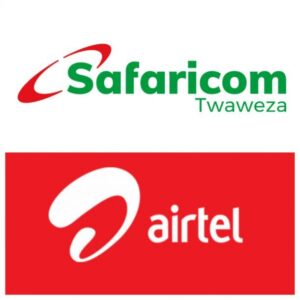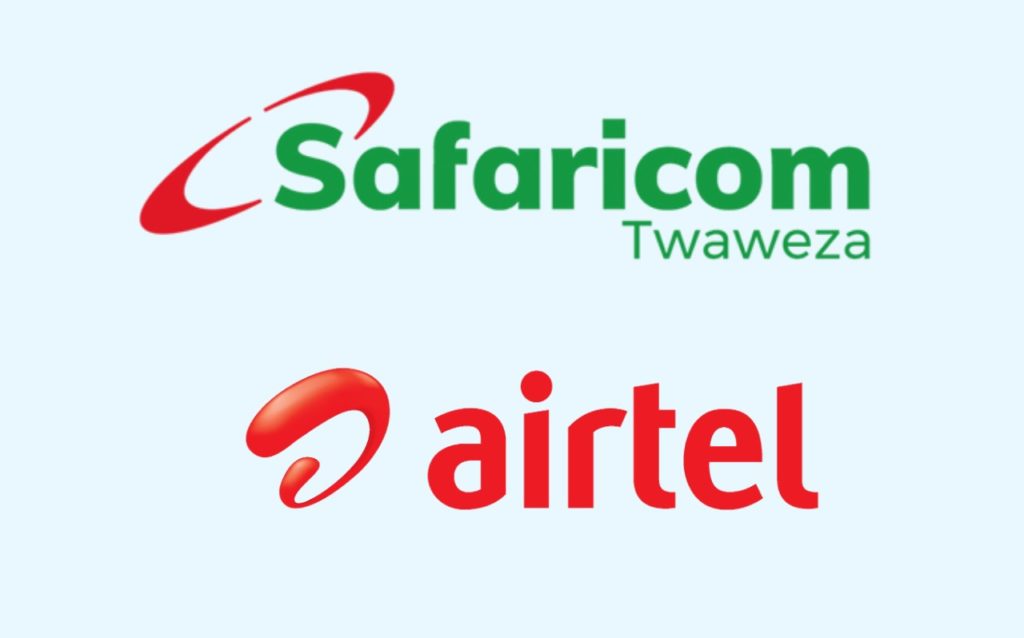Telecommunications giant; Safaricom, has once again had to defend itself against accusations that it has abused its market dominance and severely affected the competition in the telecommunications industry. The accusations were made by fellow telecommunications company; Airtel Networks Kenya.

Safaricom made it known to the Senate Standing Committee on Information and Technology that on the contrary, the competition is healthy and any player can build its market share via innovation and more investments.
The submission by Safaricom was made not long after Airtel informed the Senate Standing Committee on Information and Technology that the regulators in Kenya have been reluctant to declare that Safaricom, is indeed a dominant player even when it has a market share of over 50 percent. A share which in other markets, would have been the threshold for a designation of that sort to be implemented.
The Communications Authority of Kenya (CA) and the Competition Authority of Kenya (CAK) have both made it known that in recent years the market share for Safaricom has in fact reduced with competition within the sector, continuing to be healthy. Safaricom further buttressed said point to the Senate Standing Committee on Information and Technology.
The Chief Executive Officer of Safaricom; Peter Ndegwa stated that, “Safaricom does not have any market power and therefore Safaricom cannot act independently of other players and consumers.”
Read Also: Safaricom Looking To Secure Billions In Smart Water Meter Deal
He added, “It is our position that there should be no adverse regulatory actions that would stifle the growth of the industry. There is room for great investment in the industry and we look forward to seeing additional investment by other players into the market.”
Telecommunications company; Airtel believes that declaring Safaricom as a dominant player will be the first step in the journey to dealing with the perceived unfair operating conditions.
Airtel which is the second biggest telecommunications company in Kenya has also reportedly blamed the Communications Authority of Kenya (CA) for what it sees as the allocation of mobile spectrum in a way that benefits Safaricom and its inability to reduce the fees charged by mobile phone operators to other mobile phone operators for interconnecting calls.
Airtel in its submission stated that, “There has been no dispute as to the status of Safaricom as regards its dominance status and significant market power. However, there has been reluctance in declaring Safaricom dominant in the retail mobile market and the retail mobile money market.”
Industry data from the Communications Authority of Kenya (CA) revealed that Safaricom has a market share of 64 percent in Kenya. This is more than two times the 27 percent market share that Airtel commanded for the financial year which ended in June of 2021. Telkom Kenya on the other hand, has a 7 percent market share.
Airtel made it known that eight different countries on the African continent have had instances where market dominance was declared for companies with even lower market shares than Safaricom.
Burkina Faso for instance, declared Airtel and Telmob dominant after having market shares of 39.24 percent and 38.36 percent respectively.
The west African nation of Nigeria declared MTN dominant after it hit a market share of 44 percent. For Congo Brazzaville, MTN and Airtel were declared dominant with market shares of 40 percent and 38 percent respectively.

Airtel in its submission to the Senate Standing Committee on Information and Technology stated that, “Declaring Safaricom dominant is the first step to ensuring market competitiveness which we believe has been the sticking point and key barrier in taking any steps to rectify any market anomalies in Kenya.”
It added that, “A notion has been perpetuated that declaring Safaricom a dominant player is punishing success, which in our view is blatantly myopic.”
Airtel also made it known to the Senate Standing Committee on Information and Technology that there has been bias in the allocation of spectrum leaving Safaricom, with significantly more than its rivals.
In the words of Airtel, “Despite investing heavily in the network to improve customer experience, we continue to grapple with lack of spectrum especially in 4G/LTE which as advised by the CA is unavailable, yet the dominant player holds excessive spectrum.”
The petition by Airtel to the Kenyan Parliament revealed that it had been allocated 50 MHz of the spectrum as opposed to the 82.5 MHz allocated to Safaricom, and the 37.5 MHz allocated to Telkom Kenya.
Although Safaricom’s submission to the Senate Standing Committee on Information and Technology did not deal with the mobile spectrum allocation claim, it however, emphasized its significant investments into infrastructure, as well as it paying the largest corporate taxes in Kenya.
According to Safaricom, “Through our operations in the Kenyan economy, we have created additional government revenue of approximately Sh83 billion per annum over the past decade as a result of upstream and downstream economic activity.”
Read Also: Safaricom Set To Gain 53 Billion Kenyan Shillings From Smart Electricity Meters
It added that, “In the last financial year alone, Sh105.9 billion in taxes, duties and licence fees was paid by Safaricom.”
Airtel stated that the Communications Authority of Kenya (CA) non review of the fees which mobile phone operators have been charging each other since 2015, has been benefiting Safaricom who also happens to have significantly more users.

The charges which are more commonly referred to as Mobile Termination Rates (MTRs), have stayed at 0.99 Kenyan Shillings for the past 6 years.
Industry data revealed that the Mobile Termination Rates (MTRs) have gradually reduced from a high of 4.42 Kenyan Shillings in 2011, to the current rate of 0.99 Kenyan Shillings which was implemented in 2015 and has been in effect till date.
A prior rate cut from 4.42 Kenyan Shillings to 2.21 Kenyan Shillings in 2010 resulted in a price war among the Kenyan telecommunications operators.
Observers believe that Airtel, fellow competitor; Telkom Kenya and of course consumers, will benefit the most from a review of the current Mobile Termination Rate (MTR).
Although it is expected that a review of the Mobile Termination Rate (MTR) would result in the revenues for Safaricom taking a significant hit, the revenue drop will however not be so severe longtime due to its high number of subscribers.
Read Also: Airtel Africa Set To Sell 200 Million US Dollars Worth Of Equity In Its Cash Business
Countries like Germany, the United Kingdom (UK) and France have over the last couple of years reviewed their Mobile Termination Rates (MTRs) to be cheaper. This has resulted in much more affordable calling tariffs, and a corresponding increase in the number of subscribers.
In July of 2021, the Communications Authority of Kenya (CA) said the time was right for Kenya to review its Mobile Termination Rates (MTRs) so as to match the changes in technology that have occurred and made things significantly more efficient.
In the past the Communications Authority of Kenya (CA) allegedly defended Safaricom against accusations that the telecommunications company had abused its dominance in the telecommunications industry.
In April 2021 the Director-General of the Communications Authority of Kenya (CA); Wang’ombe Kariuki revealed to the Senate ICT committee that the compliance checks which were carried out on Safaricom’s Text, Voice, and M-Pesa services did not apply to reveal any practices or contracts that exposed its competitors; Airtel and Telkom to unfair competition in any way.
How informative was this article? Are there any other news topics, categories, or How To topics, that you would like us to write on? Feel free to reach out to Mpesa Pay in the comment section.


